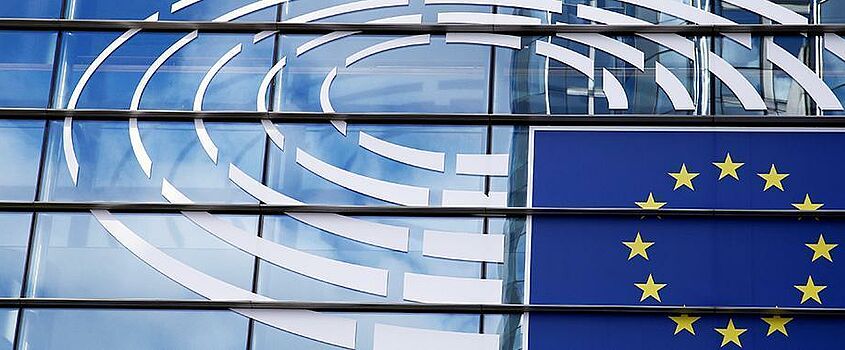What is the Carbon Border Adjustment Mechanism (CBAM) actually all about?
As part of our current topics, we would like to introduce you to the Carbon Border Adjustment Mechanism (CBAM). This measure, which was introduced as part of the EU's “Fit for 55” package, is already having a global impact and aims to protect the European economy from competitive disadvantages.
CBAM: An overview
The CBAM was set up to create a level playing field for European and imported products. This is achieved by checking third country goods for embedded emissions when they are imported into the EU. This involves checking whether fees and charges for greenhouse gas emissions have already been paid in the third country. From 2026, importers will have to purchase CBAM certificates for the embedded emissions of third-country products, the price of which will be based on the EU ETS certificate price.
Timetable and requirements
Since October 1, 2023, all importers and indirect customs representatives have been obliged to examine CBAM goods for embedded emissions and submit quarterly reports. Regulation (EU) 2023/956 defines which products are considered CBAM goods. These include over 750 products made of iron, steel, cement and aluminium as well as imported electricity, fertilizers and hydrogen. The EU Commission wants to decide by the end of 2025 whether further products from the basic chemicals sector will be added.
Implementation stages
CBAM is implemented in several phases:
- Phase 1: All importers who import selected goods into the EU are subject to the CBAM rules. Companies had to submit the first CBAM report on January 31, 2024 for the fourth quarter of 2023. The EU Commission has announced an extension of the submission deadline to April 30, 2024. Corrections for the first three quarters are possible until July 31, 2024
- Phase 2: CBAM reports must be submitted quarterly until the end of 2025. From January 1, 2026, CBAM certificates must be purchased at the price of EU ETS certificates.
Our service offer
At Maygreen, we provide comprehensive support to help you overcome CBAM challenges. Our services include:
- Evaluation of impact: we analyze the extent to which your company is affected by CBAM regulations.
- Preparation of quarterly CBAM reports: Our “CBAM Facilitator” software enables the automated creation of reports with current emission factors.
- Training and escalation concepts: We develop and deliver customized training to ensure your team understands and implements regulatory requirements.
Conclusion
CBAM is an extremely complex set of rules with a clear timetable and implementation phases for companies. Our experts at Maygreen will be happy to advise you on the challenges and provide you with comprehensive information. Contact us to find out more about our solutions and services.
Summary CBAM
The first implementation phase has already started:
- All importers who import selected goods (approx. 750 products) into the EU are subject to the CBAM rules.
- Companies had to submit the first CBAM report on January 31, 2024 for the fourth quarter of 2023. An extension of the submission deadline to April 30, 2024 was announced by the EU Commission. Corrections for the first three quarters are possible until July 31, 2024.
- CBAM reports must be submitted quarterly until the end of 2025 before CBAM allowances equivalent to the value of EU ETS allowances must be purchased from January 1, 2026.
Our service offer:
- Evaluation of the impact
- Automated creation of quarterly CBAM reports with updated emission factors directly from the “CBAM Facilitator” software
- Creation and implementation of (individual) training and escalation concepts, taking regulatory requirements into account

